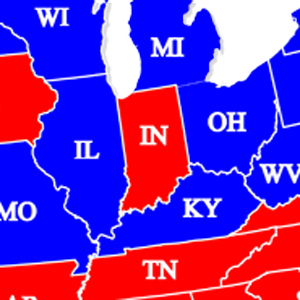Right to Work is about Freedom and Jobs not Political Parties
President Obama, pandering to a crowd of Democrat party AFL-CIO union activists, attacked Right to Work laws as being more about politics than economics when the inverse is true -- opposition to Right to Work laws is about the Big Labor-owned Democrat party not economics. The President's own Department of Commerce's proves our point: Somethings never CHANGE, no matter how much we HOPE it does. Today the U.S. Commerce Department’s Bureau of Economic Analysis posted annual personal income data for 2011 on its web site. The data show that Right to Work states continue to enjoy a substantial income growth advantage over forced-unionism states. The Right to Work growth advantage is especially strong when it comes to private-sector compensation – that is, the wages, salaries, bonuses and benefits businesses provide for their employees. From 2010 to 2011 alone, private-sector compensation increased by 2.2% in the 22 Right to Work states, after adjusting for inflation with the U.S. Labor Department’s consumer price index (CPI-U). In the 28 compulsory-unionism states, real private-sector compensation increased by just 1.7%. (Just this month, Indiana became the 23rd Right to Work state as the law banning forced union dues and fees signed by Gov. Mitch Daniels in early February took effect.) Over the past 10 years, from 2001 to 2011, real private-sector compensation in Right to Work states grew by 12.5%. That increase is four times as great as forced-unionism states’ aggregate gain of just 3.1%.






